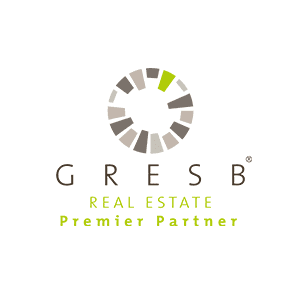
Thought
GRESB 2019 pre-release: a review of the tweaks and refinements
GRESB has broadly taken a “don’t fix what ain’t broke” approach to the 2019 survey, with the pre-release revealing that only minor changes to the reporting framework have been made from last year.
This is perhaps a sign that, after ten years of development, GRESB are settling on a long-term formula for the majority of the questionnaire. This consistency will enable real estate funds and sustainability professionals to focus more on delivering improvement programmes and less on dealing with shifting reporting expectations, thereby maximising the benefit that GRESB participation will bring about.
Steps have also been taken to reduce reporting burden, with evidence requirements removed from ME2 (data management system) and SE8.1 (tenant satisfaction surveys) where past evidence acceptance rates were high. While EVORA generally supports attempts to reduce reporting burden, removing evidence requirements is potentially an integrity risk, particularly in this instance regarding SE8.1. Open text boxes removed from RO5/6/7 (implemented measures), PI1.2/2.2/3.2 (intensity calculations) and NC7.2 (net zero buildings) where the information was not considered to be adding sufficient value for the effort required.
While EVORA generally supports attempts to reduce reporting burden, removing evidence requirements is potentially an integrity risk
Despite the pursuit of consistency, GRESB is still recognising the real estate industry’s shifting goalposts by introducing two two-part questions to the stakeholder engagement section (SE12 and SE13) on the implementation of programmes for the promotion and improvement of health & wellbeing. These are at organisation (i.e. your employees) and asset level respectively. A selection of other references to health & wellbeing has also been introduced throughout the survey, acknowledging the growing importance of this theme in real estate.
The Resilience Module is also entering its second year, and we await further details of this with intrigue. This topic continues to gain significant momentum amongst our clients and in the industry as a whole, and we expect GRESB will acknowledge this through its updates to the Module and the subsequent introduction to the main survey in the coming years.
If anything, I would argue that it’s the “checked” and “verified” categories that could be merged
Perhaps the most controversial change to the Survey is that “verification” and “assurance” of data will be scored equally. Having been through the assurance process with clients in the past, I can vouch that it is extremely thorough and, in my view, warrants the additional points it receives. If anything, I would argue that it’s the “checked” and “verified” categories that could be merged, as the lines of definition between these two are generally more blurred.
Overall, EVORA supports GRESB’s approach of striving for consistency whilst acknowledging new industry themes, and we look forward to continuing to drive innovation and transformation through its delivery in 2019.
 We are perfectly positioned to provide GRESB support. View our official Premier Partner profile.
We are perfectly positioned to provide GRESB support. View our official Premier Partner profile.
We can work with you to complete the submission and understand your scoring, as well as develop a sustainability plan that will improve your future GRESB performance and align with your organisation’s key environmental objectives.
Contact us to see how we can help you.













